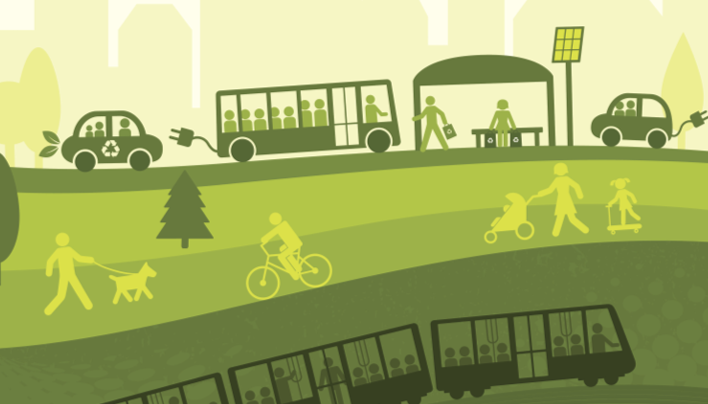FOR IMMEDIATE RELEASE
March 10, 2020
Contacts:
Travis Madsen, SWEEP Transportation Director, tmadsen@swenergy.org | 720-669-7488
Matt Frommer, SWEEP Senior Transportation Associate, mfrommer@swenergy.org | 908-432-1556
__________
[BOULDER, COLORADO] – A new research paper released today by the Southwest Energy Efficiency Project finds that Colorado has missed out on $7 billion in transportation funding since 1991, largely because the state has not raised its gas tax to keep up with inflation. The report, Sustainable Transportation Funding for Colorado: Modernizing the Gas Tax to Improve Air Quality, Protect the Climate, and Save Money, recommends policy reforms to increase transportation funding, while at the same time helping Colorado build a cleaner and more efficient transportation system.
“We need to do more than just raise money to improve our road network,” said Travis Madsen, SWEEP Transportation Director and co-author of the report. “We need to conserve energy, clean up air pollution, improve public health, protect our climate, and better connect people to housing, jobs, commerce and community. Modernizing the gas tax can drive Colorado in a better direction.”
Colorado voters rejected ballot initiatives in 2018 and 2019 that would have generated additional funds for transportation. State policymakers have been filling in gaps by transferring money from the general fund, which reduces money available for other programs. Additionally, some policymakers have pointed to electric vehicles as a major factor in reduced transportation funds, calling for increased registration fees.
“Raising fees on electric vehicles won’t fix Colorado’s transportation funding shortfall,” said Matt Frommer, SWEEP Senior Transportation Associate and report co-author.
The report found that even in a highly aggressive scenario for electric vehicle deployment, in which 25 percent of all new vehicle sales in Colorado are electric by 2025, inflation and fuel efficiency will reduce state gas tax revenues by at least 10 times more than EVs over in the next 5 years. Moreover, electrifying vehicles while cleaning up the electricity grid is the single biggest thing Colorado can do to reduce climate-changing pollution. Accelerating EV deployment will also save people money and increase the energy efficiency of our transportation system.
Vehicles are now the number one source of climate-changing carbon dioxide pollution in Colorado, and a major reason the Front Range has been downgraded to a “serious” nonattainment zone for air quality under the Clean Air Act. People driving alone are a major source of road congestion, and transportation is the number two expense for a typical family in the region, averaging around $10,000 per year.
To modernize the gas tax, the report recommends these key steps:
- Raise the gas tax (or create a new transportation impact fee). Adding 20 cents per gallon would return the state gas tax to the level it would have been at today if the state had indexed it to inflation in 1991.
- Stabilize revenue by indexing the gas tax to inflation, indexing to total fuel consumption, and extending the tax to all transportation fuels on an energy-equivalent basis. This will ensure that all vehicle owners pay into the system, regardless of fuel, while encouraging more clean and efficient transportation in Colorado.
- Avoid additional fees for electric vehicles. Saving money on fuel is the primary reason people buy electric vehicles. Raising the EV fee would erode potential savings and reduce the attractiveness of electric vehicles, slowing electric vehicle deployment and delaying their benefits. Under the formula above, electric vehicle owners will automatically pay more as more people drive on electricity.
“The more we build our transportation system around driving,” noted Madsen, “the more people drive. We also need to reform how we spend transportation dollars to focus more on moving people, rather than just cars.”
The report further recommends that the state:
- Separate fundraising policy from investment decisions to better enable governments to prioritize transportation projects that best meet public-interest and social objectives, including congestion and pollution reduction; and
- Align transportation spending with social and environmental goals — including reducing air pollution, meeting the greenhouse-gas targets in House Bill 19-1261, reducing vehicle miles traveled, improving safety, repairing existing infrastructure, and increasing affordable mobility.
###
The Southwest Energy Efficiency Project (SWEEP) is a public-interest organization promoting greater energy efficiency in Arizona, Colorado, Nevada, New Mexico, Utah, and Wyoming. For more information about our programs and other work, please visit swenergy.org



